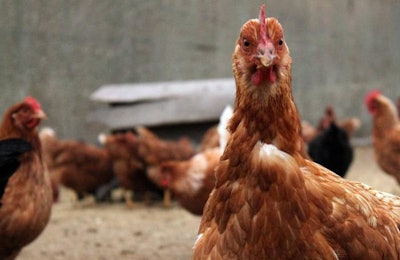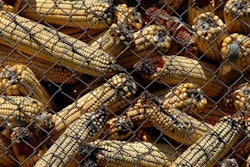
It’s time for animal agriculture to try some ideas contrary to conventional wisdom.
On February 21, Andrew Winston, founder of Winston Eco-Strategies, asked attendees at the Annual Meat Conference 2016 in Nashville, Tennessee, to ponder some challenging, global issues. Climate change, the struggle to feed a growing global population with limited resources, the scarcity of fresh water and consumer’s growing rejection of conventional farming practices.
The answer to all these challenges, the environmental policy consultant and speaker said, may lie in challenging traditional beliefs and trying methods some may consider impractical or impossible.
Trends and strategies
Winston, who has provided consulting services to companies like Pepsico Inc. and Unilever N.V., spoke about the coming the “megatrends” in the globe that will cause a pivot in the way businesses think and work to serve a rapidly changing society. Knowing, and being prepared for those trends, he said, will equip companies to grow and survive in the future.
The biggest trends Winston identified are demographic and societal changes, including income inequity, a shift in global economic power from west to east; rapid urbanization, climate change and resource scarcity and significant technological breakthroughs.
In order to become a more resilient business, companies must address those changes by:
- Building partnerships, by inspiring customers to use less, collaborating with competitors or lobbying governments for change.
- Changing their goals, by setting long-term goals rather than obsessing over quarterly results, setting science-based goals rather than desire-base goals and pursuing what he calls heretical innovation.
- Changing how they value assets, by changing incentives and engaging with employees, redefining what return on investment means and valuing natural capital.
Specifically for the meat industry, Winston pointed to the findings of a 2013 United Nations Conference on Trade and Development report on the sustainability of agriculture in the future.
The report called for:
- Increasing soil carbon content and better integrating crop and livestock production.
- Increased incorporation of trees and wild vegetation in farmland.
- Reduction of direct and direct greenhouse gases in livestock production.
- Reduction of waste throughout food chains.
- The changing of dietary patterns toward climate-friendly food consumption.
Winston, quoting a recent article from the Wall Street Journal, said in the coming decades humanity will require all of the arable land on earth to go toward food production. That, he said, might be impossible and the issue will require innovative thinking.
It’s also clear, he said, that intensification of current farming practices won’t solve the problem. Consumers are already rejecting innovations like genetically modified organisms, pesticides, antibiotics and breeding to speed up natural growth.
“Even if it worked, even if the math worked, even if we could use hormones and antibiotics to grow animals even faster, customers don’t want it. We have a really big hurdle here. This is a total disconnect. Nobody wants it anymore,” Winston said. “I am exaggerating slightly but think about the companies who have said they are taking it out of their product? So how are we possibly going to do this? I think the answer is clear … it can’t just be intensifying our current processes. This is true across every sector.”
Asking 'heretical' questions
That led back to the concept of heretical questions. What if livestock farmers, which are chided for producing greenhouse gases on a large scale, can actually help the environment? What if mimicking migratory ruminants’ natural feeding pattern could lead to more efficient livestock farming?
Winston pointed to Polyface Inc., a livestock farm in Virginia, which is increasing its productivity per acre of land and increasing the quality of the soil by putting livestock back in the field. The farm rotates cows and chickens on grass pastures, rather than feeding the animals corn or other grains.
While the results are promising, he said the idea must be increased to a larger scale to see if it could be a strategy for global livestock production. The production method also takes far more manpower than conventional farming – more hands to drive livestock and more planning and skillful management to ensure the proper rotation is taking place – but it could, hypothetically, present a solution to a global loss of jobs as all industries, including agriculture, become more automated.
Winston asked the biggest heretical question himself. What if meat could be produced without animals?
He said research, which is attracting serious investors like Microsoft Corp. co-founder Bill Gates and Google co-founder Sergey Brin, indicates it is possible to synthetically produce meat. The concept will be experimented with and it will be funded.
Ultimately, to have a market allowing livestock producers to stay in business in the future, the industry will have to change and bitter competitors will have to take a heretical step and work together to solve humanity’s common problems.
“Business can’t thrive unless society and the planet thrive. That is the bottom line, and I don’t think livestock can thrive unless the planet is thriving. If we keep degrading soil, keep degrading our grasslands, you can’t thrive,” Winston said. “Think about what your heresy is … how will you be the hero in this stories? What if our future depended upon your answers? Because it does.”


















